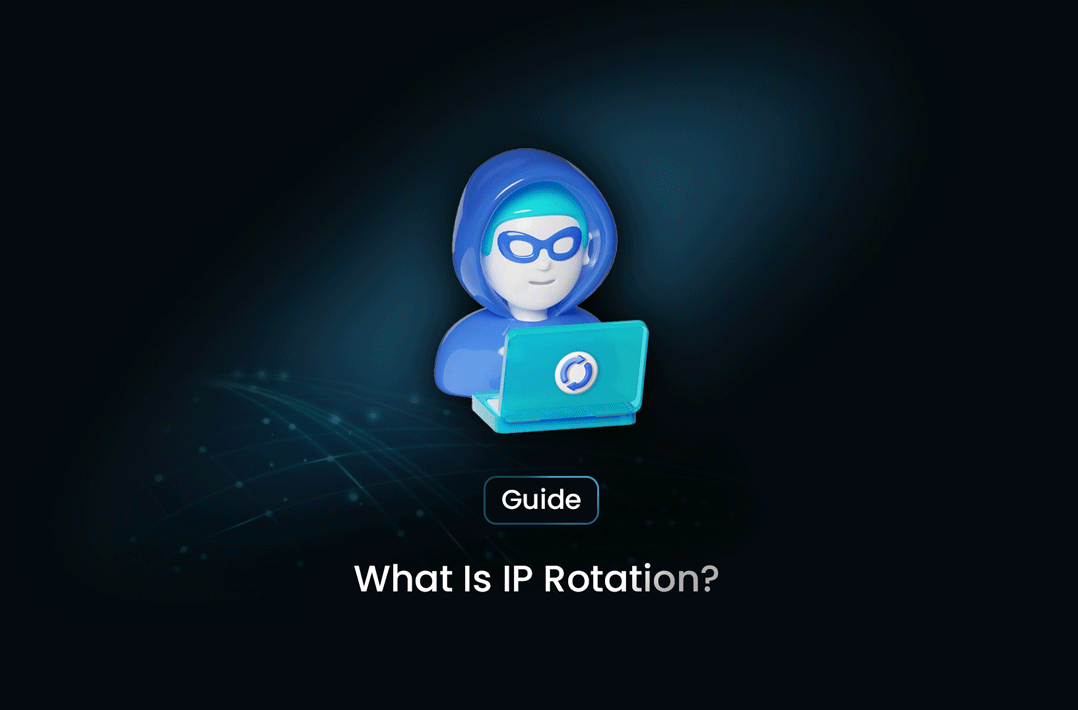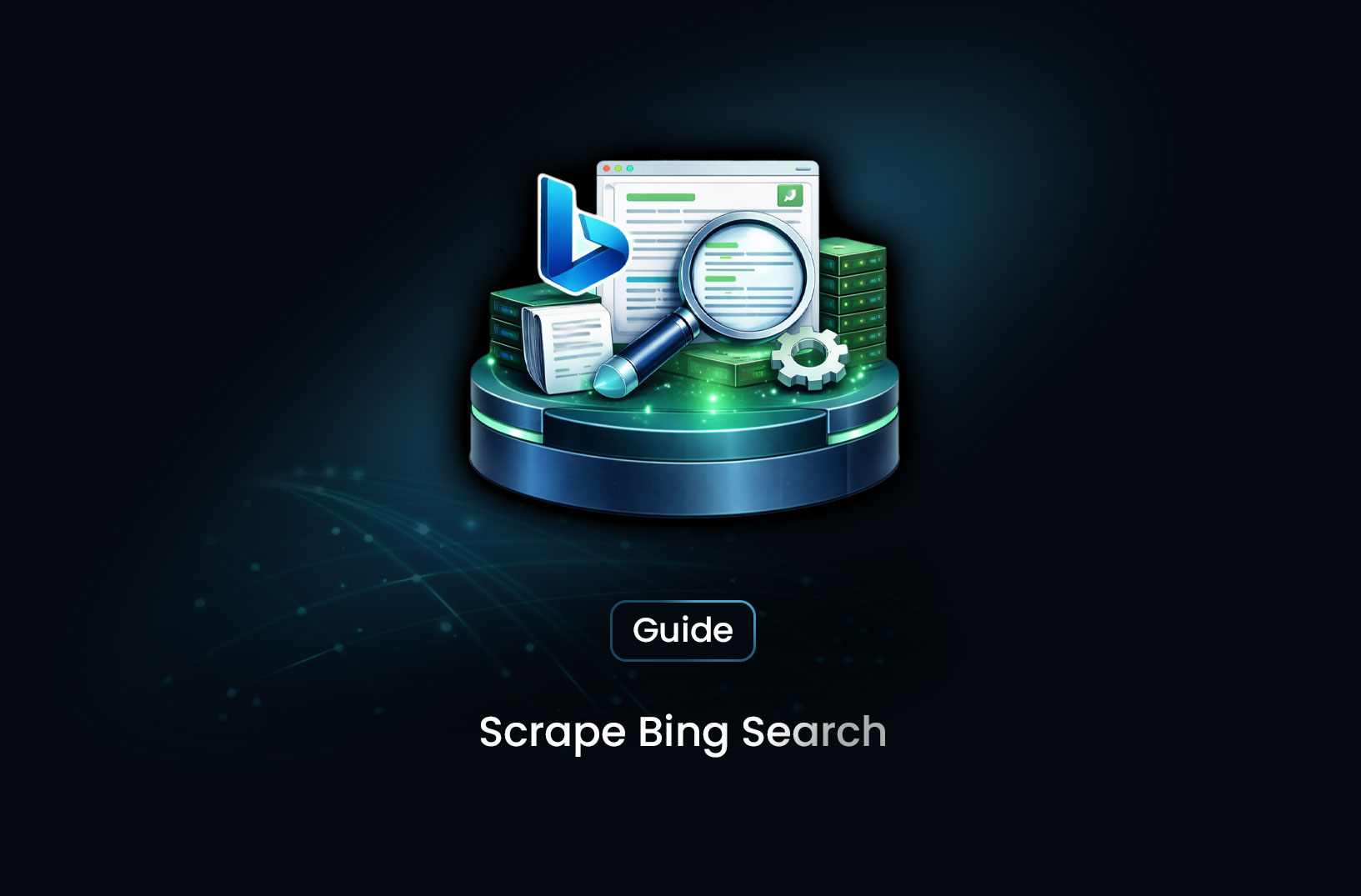
What Is IP Rotation? A Simple Guide to Staying Anonymous Online
GuideIP rotation refers to regularly changing your IP address during online activity. This prevents websites from detecting and blocking your requests, a common issue when making frequent or automated requests to a site.
IP rotation is a critical technique in today's digital landscape, helping users maintain privacy, bypass restrictions, and gather data effectively. Whether you're a business owner, web scraper, or privacy-conscious individual, understanding how IP rotation works can open up a world of possibilities.
This blog will explore IP rotation, how it works, and practical implementation methods. We’ll also address common challenges and share tips to ensure seamless operation.
What is IP Rotation?
IP rotation refers to regularly changing your IP address during online activity. This prevents websites from detecting and blocking your requests, a common issue when making frequent or automated requests to a site.
For example:
- Without IP rotation: Multiple requests from the same IP can be flagged as suspicious.
- With IP rotation: Each request appears to come from a different IP, mimicking different users' behavior.
Benefits of IP Rotation
- Anonymity: Protects your identity and browsing habits.
- Access: Bypass geolocation restrictions and blocks.
- Efficiency: Ensures uninterrupted data scraping or automation.
How Does IP Rotation Work?
IP rotation can be implemented through proxies, VPNs, or custom-built systems. Each method works by masking your original IP and assigning a new one for each connection or request.
Methods of IP Rotation
- Proxies: Rotating proxy services automatically assign a new IP from a large pool for each request.
- VPNs: Premium VPNs offer features like IP cycling, though they’re slower than proxies.
- Custom Scripts: Developers can build systems that rotate IPs using free proxy lists or APIs.
Step-by-Step Guide to Setting Up IP Rotation
1. Using a Proxy Service
A proxy service is one of the simplest ways to implement IP rotation.
- Example: Bright Data or Oxylabs.
- Steps:
- Sign up for a proxy service.
- Set up the integration via their API.
- Configure your tool to use the rotating proxy.
2. Rotating IPs with VPNs
VPNs like NordVPN offer built-in IP rotation for privacy-focused users.
- Steps:
- Subscribe to a VPN with IP rotation capabilities.
- Connect to a server with the rotation feature enabled.
- Test the connection using an IP-checking tool.
3. Building a Custom Solution
For developers and businesses, custom scripts can be a cost-effective alternative.
- Tools Needed: Python, free proxy lists, or APIs like Scrapy.
- Code Example:
import requests
proxies = {
"http": "http://proxy1.com",
"https": "https://proxy2.com"
}
response = requests.get("https://example.com", proxies=proxies)
print(response.content)
Challenges of IP Rotation
While IP rotation is powerful, it comes with its own set of challenges:
- Blocked Proxies: Some websites actively block known proxy IPs.
- CAPTCHA Triggers: Frequent changes can sometimes lead to CAPTCHA challenges.
- Latency Issues: Rapid IP switching can slow down connections.
Best Practices for IP Rotation
To make the most of IP rotation, follow these guidelines:
- Integrate User-Agent Rotation: Mimic real users by rotating browser headers.
- Optimize Request Rates: Avoid sending too many requests in a short time.
- Monitor Blocked IPs: Replace proxies that get blacklisted.
Use Cases for IP Rotation
IP rotation has numerous applications across industries:
- Web Scraping: Gather data without being detected or blocked.
- Digital Marketing: Monitor competitor strategies and pricing data.
- Cybersecurity: Enhance anonymity and secure online activities.
IP rotation is essential for anyone looking to maintain privacy, access restricted data, or automate web scraping effectively. By understanding its benefits and implementing the right strategies, you can unlock its full potential and avoid common pitfalls.
For further resources, check out:
Ready to take your web scraping or online activities to the next level? Start leveraging IP rotation today!
Find more insights here

Scrape Bing Search: A Practical Technical Guide
Bing scraping blocked? Discover how to bypass rate limits and bot detection to extract URLs, titles,...

FilterBypass: Unblocking Restricted Sites in a Simple Way
FilterBypass is a free web proxy that acts as an intermediary between your browser and the target si...

YouTube.com Unblocked: Accessing YouTube When It’s Restricted
Learn how to access YouTube unblocked on school, work, or regional networks. Explore VPNs, proxies,...
